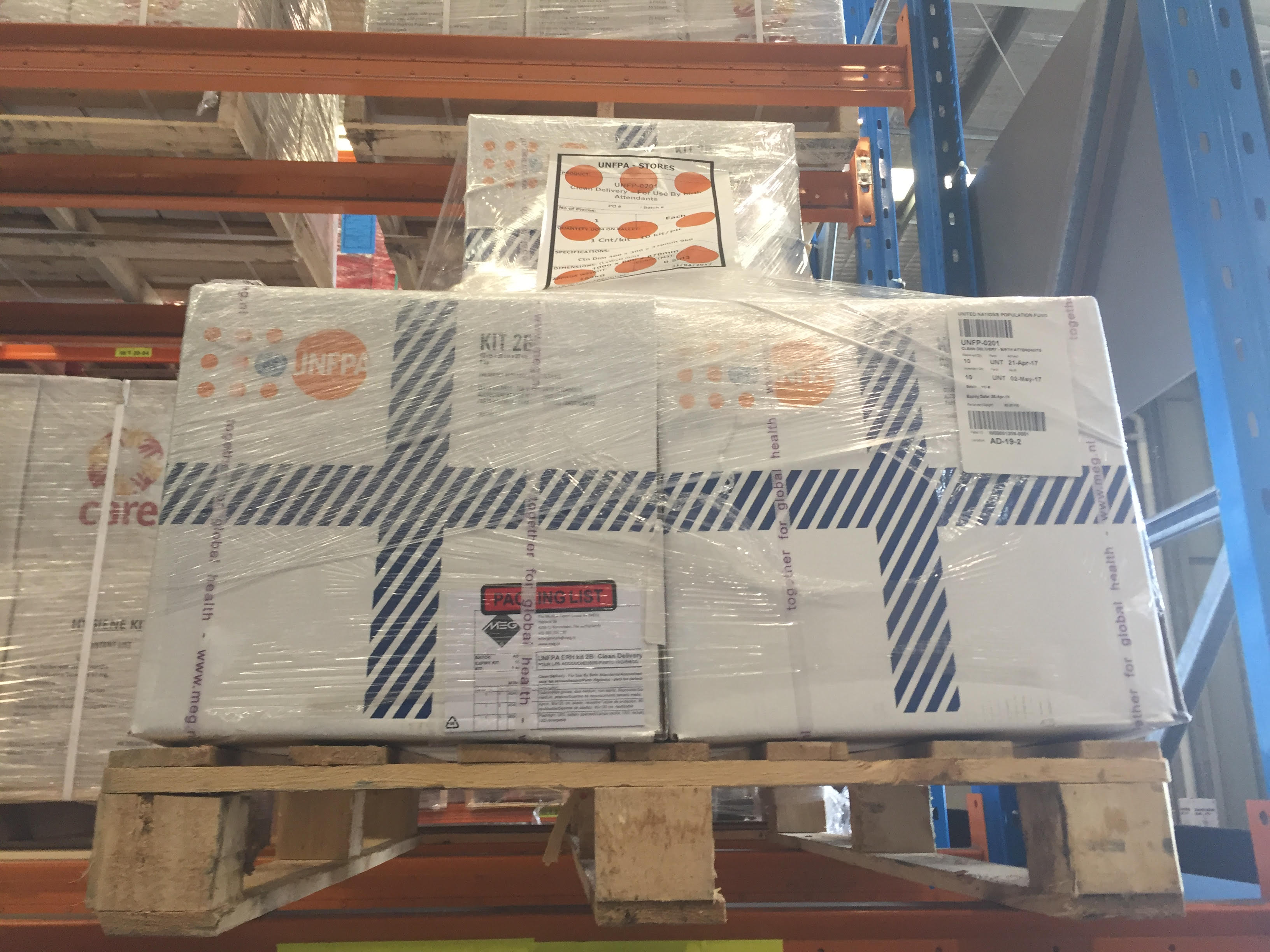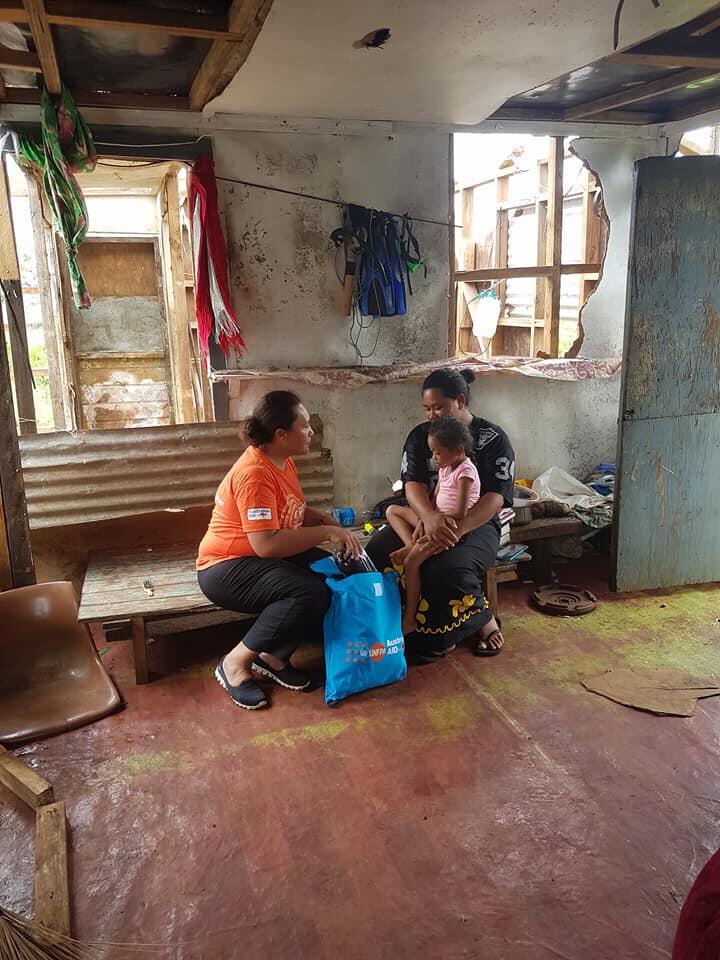When Cyclone Gita tore through the Pacific in February 2018, the storm surges, flooding and gale force winds caused severe damage across Tonga, Samoa and Fiji’s remote Lau island group. The Category 4 storm was described as the worst to hit Tonga in 60 years, affecting 70 percent of the total population of the Kingdom, damaging thousands of homes and flattening Parliament House.
Working through the Pacific Humanitarian Team to support the Government of Tonga’s response, UNFPA was able to respond quickly to the needs of women and girls on the ground thanks to lifesaving sexual and reproductive health and protection supplies that were prepositioned in the Australian Aid warehouse in Brisbane, Australia. The supplies were airlifted alongside other relief shipments provided by Australia just days after Gita hit, ensuring that the specific needs of women and girls affected by the cyclone were prioritised in the response.
The dignity kits, clean delivery kits and tents that are being used to establish women-friendly spaces for those whose homes have been damaged or destroyed, all come through a regional initiative managed by UNFPA’s Asia-Pacific Regional Office and supported by Australia’s Department of Foreign Affairs and Trade (DFAT).
The initiative aims to strengthen emergency preparedness to address critical sexual and reproductive health and protection needs in the Asia-Pacific Region. Strategically prepositioning supplies has enabled UNFPA to respond faster, better and more efficiently to regional humanitarian crises. Not only are the commodities immediately available to use, preparedness efforts also help to improve the quality of the response.
For example, while UNFPA has standard dignity kits available in the acute phase of an emergency the dignity kits stored in the Brisbane warehouse have been customized specifically for the Pacific context and include culturally-appropriate items that the women and girls in Tonga need immediately. Prepositioning supplies with partners like DFAT also saves money and is better for the environment – these bulky supplies were initially transported by sea, thereby saving tens of thousands of dollars that it would cost to airfreight supplies to Tonga immediately after the cyclone.
From May 2017 to March 2018, 56,000 people affected by emergencies across the Indo-Pacific region have benefited from over AUD 1 million worth of supplies distributed through this initiative. These crucial supplies have been drawn upon in a number of crises across the region reaching those displaced due to volcanic activity in Bali, Indonesia; Ambae, Vanuatu; Kadovar, Papua New Guinea; and Mayon, Philippines, as well as the flooding in Magway, Myanmar; the Marawi crisis in Mindanao, Philippines; and now those affected by the recent earthquake in Papua New Guinea and Cyclone Gita in both Tonga and Fiji.

UNFPA supplies at the warehouse in Brisbane, Australia (July 2017). Image: UNFPA/DFAT.
UNFPA is truly grateful for the strong partnership we have with DFAT in putting women and girls at the centre of humanitarian response, and ensuring we have the resources to do so.


